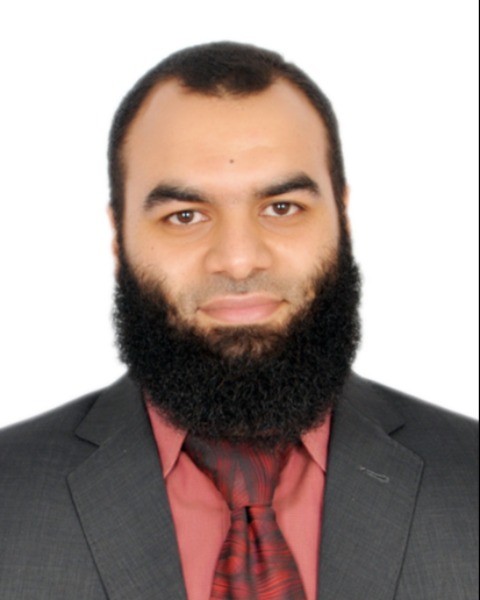Testis/Sperm
Poster Session A
(P-483) Specific disruption of Dcaf17 gene in spermatids is dispensable for post-meiotic germ cell development and fertility in mice
Wednesday, July 17, 2024
8:00 AM - 9:45 AM IST
Room: The Forum

Islam M. Saadeldin, PhD (he/him/his)
Senior Scientist
King Faisal Specialist Hospital and Research Center, Saudi Arabia
Poster Presenter(s)
Abstract Authors: Bhavesh V. Mistry1, Maha Alanazi1, Mohamed Rajab1, Hala A. Ahmed1, Razan Abdulla1, Reem AlOtaibi1, Islam M. Saadeldin1, Falah Almohanna1 and Abdullah Assiri1
1Comparative Medicine Department, King Faisal Specialist Hospital and Research Centre, Riyadh, Saudi Arabia
Abstract Text: DDB1- and CUL4-associated factor 17 (Dcaf17) is a member of DCAF family genes that encode substrate receptor proteins for Cullin-RING E3 ubiquitin ligases and associates with cullin 4A / damaged DNA binding protein 1 ubiquitin ligase complex. Mutations in this gene are associated with Woodhouse–Sakati syndrome which is characterized by progressive malformations throughout the body. Our previous reports indicated that global Dcaf17 gene deletion in mice caused male sterility and impaired germ cell development with defective spermiogenesis, apoptosis, dysmorphic sperms and diminished sperm count. We hypothesized that Dcaf17 gene is critical for post-meiotic sperm development and attempted to induce spermatid specific knockout using Floxed Dcaf17 and protamine 1 (Prm)-cre mice breeding strategy. Fertility test, testis weight, sperm counts, motility, and testis histology were assessed in Spermatid specific Dcaf17 knockout mice after pairing with wild type (WT) C57BL/6J female mice. The spermatids specific Dcaf17 deletion was confirmed by tail and sperm genotyping. Spermatid specific Dcaf17 knockout mice are fertile and exhibiting normal sperm number and motility similar to control group. Moreover, histological sections stained with hematoxylin and eosin as well as periodic-acid Schiff stain in the spermatid-specific mutant and control testes were examined exhibited intact seminiferous tubules with normal spermatogenesis having all types of spermatogenic cells from spermatogonia to spermatozoa. Our results suggested that disruption of Dcaf17 in haploid spermatids stage of spermatogenesis does not influence spermiogenesis process and resulted in normal sperm production and male fertility. Despite anomalous Dcaf17 spermiogenesis in the global knockout mice, targeted deletion of this gene in spermatids does not affect mice fecundity and post-meiotic sperm development. Normal Dcaf17 gene expression is required before the development of round spermatids.
1Comparative Medicine Department, King Faisal Specialist Hospital and Research Centre, Riyadh, Saudi Arabia
Abstract Text: DDB1- and CUL4-associated factor 17 (Dcaf17) is a member of DCAF family genes that encode substrate receptor proteins for Cullin-RING E3 ubiquitin ligases and associates with cullin 4A / damaged DNA binding protein 1 ubiquitin ligase complex. Mutations in this gene are associated with Woodhouse–Sakati syndrome which is characterized by progressive malformations throughout the body. Our previous reports indicated that global Dcaf17 gene deletion in mice caused male sterility and impaired germ cell development with defective spermiogenesis, apoptosis, dysmorphic sperms and diminished sperm count. We hypothesized that Dcaf17 gene is critical for post-meiotic sperm development and attempted to induce spermatid specific knockout using Floxed Dcaf17 and protamine 1 (Prm)-cre mice breeding strategy. Fertility test, testis weight, sperm counts, motility, and testis histology were assessed in Spermatid specific Dcaf17 knockout mice after pairing with wild type (WT) C57BL/6J female mice. The spermatids specific Dcaf17 deletion was confirmed by tail and sperm genotyping. Spermatid specific Dcaf17 knockout mice are fertile and exhibiting normal sperm number and motility similar to control group. Moreover, histological sections stained with hematoxylin and eosin as well as periodic-acid Schiff stain in the spermatid-specific mutant and control testes were examined exhibited intact seminiferous tubules with normal spermatogenesis having all types of spermatogenic cells from spermatogonia to spermatozoa. Our results suggested that disruption of Dcaf17 in haploid spermatids stage of spermatogenesis does not influence spermiogenesis process and resulted in normal sperm production and male fertility. Despite anomalous Dcaf17 spermiogenesis in the global knockout mice, targeted deletion of this gene in spermatids does not affect mice fecundity and post-meiotic sperm development. Normal Dcaf17 gene expression is required before the development of round spermatids.
